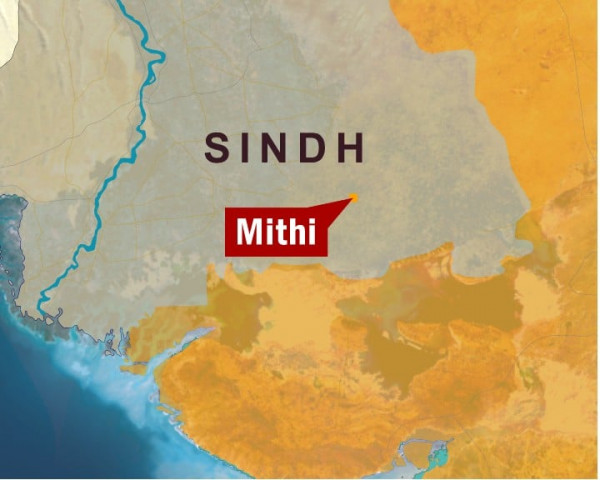Harsh lessons for Tharparkar’s smart girls without teachers
Girls are finishing primary school to discover there are no teachers to take them higher.

The 26th annual general body meeting of Baanhn Beli was attended by 84 women and men, representing dozens of village-based organisations, from all talukas of Tharparkar. The meeting was presided over by Javed Jabbar, the founding president of Baanhn Beli, and was conducted by Muhammad Khan Marri.
Speakers discussed the urgent need to address the shortage of female teachers and paramedics across Tharparkar. The widespread shortage in all talukas is depriving thousands of girls, who have completed their primary education, from enrolling in middle and high schools.
Parents do not want girls to be taught by male teachers, so the dearth of female staff is having a terrible impact on their education. In some of the talukas, the situation is so bad that several girls middle and high schools are unable to function because they don’t have enough teachers. This trend is soon going to cause a bigger problem because female enrollment in primary schools has been rising steadily. Once they are ready to move into middle school, their education will end abruptly because of this shortage.
In 1986 and 1987, three high schools for girls were set up in Mithi, Islamkot and Nagarparkar, which have enabled hundreds of girls to complete their matriculation in the last 20 years. “This proves that if the schools are provided, there will be no shortage of students,” a speaker noted.
Speakers said that as part of the Prime Minister’s Primary Health Initiative programme launched in 2006, female doctors are now available as full-time residents in Nagarparkar and Viravah. Even though three female health visitors are also posted in Nagarparkar taluka, there still remains a need for more female paramedics.
Compared to previous years, 2010 was a good year. There was adequate rainfall and crops, improvement in the availability of medicines in rural health centres and basic health units, increased support from government relief programmes and positive work by many NGOs.
However, in addition to the shortage of women teachers and paramedics, certain other problems also require attention. They include a need for mass health education with a special focus on women and children, the problem of the coercive collection of extra payments from small farmers under the pretext of land revenue and unresolved status of thousands of acres of land designated as “enemy property” after the 1971 war with India. Many Hindus living in the area had abandoned their property and migrated to India while their land has since then been cultivated by low-income families.
What is the Baanhn Beli?
It an organisation working to bridge the gap between urban and rural areas in Sindh. The phrase Baanhn Beli is used in the Sindhi, Seraiki and Punjabi languages to say that someone is “a friend forever.” The organisation tries to bring together disadvantaged people who live in villages with professional specialists living in large cities so that they can learn from each other and achieve shared developmental aims.
Baanhn Beli website
Published in The Express Tribune, December 23rd, 2010.



















COMMENTS
Comments are moderated and generally will be posted if they are on-topic and not abusive.
For more information, please see our Comments FAQ